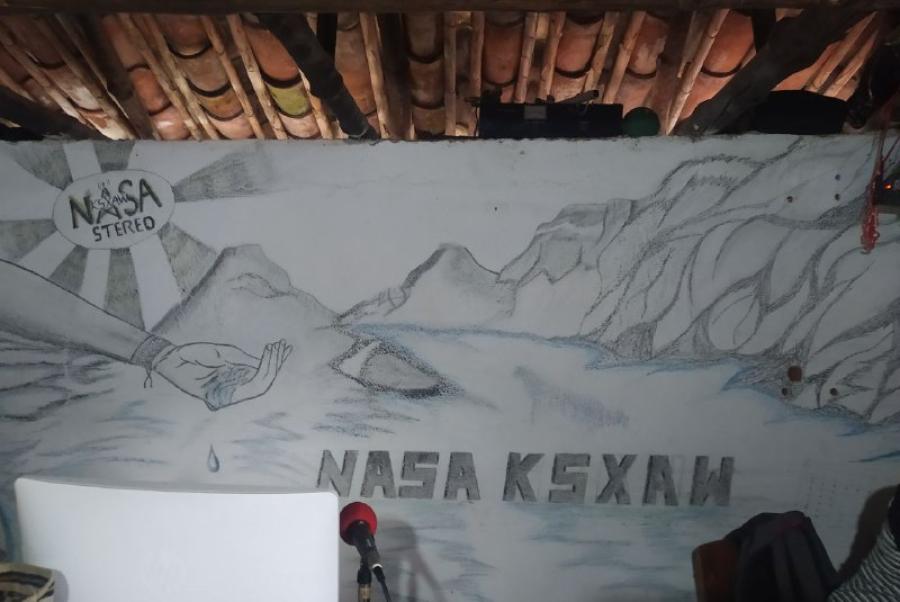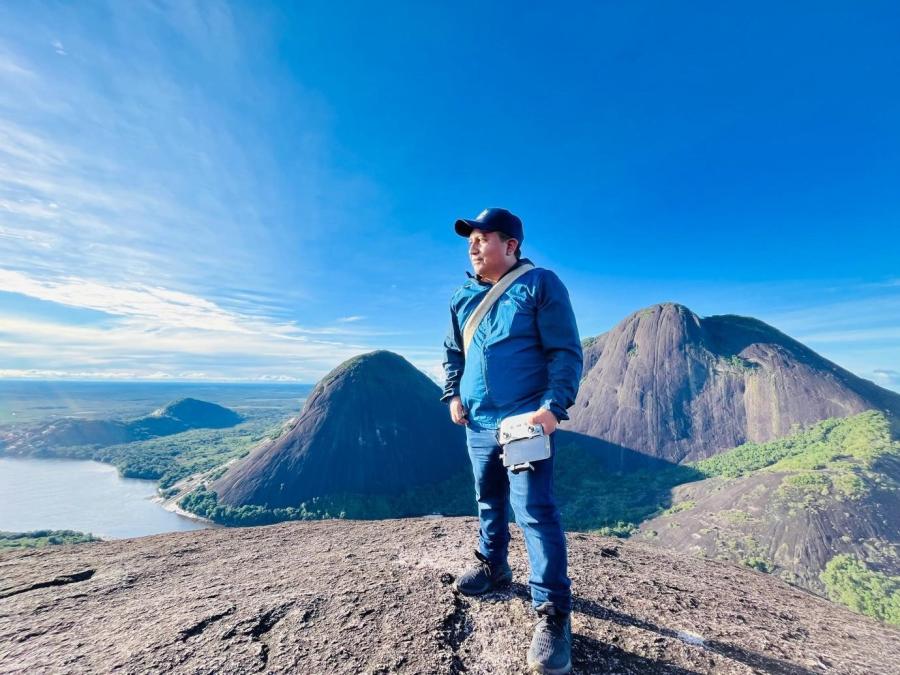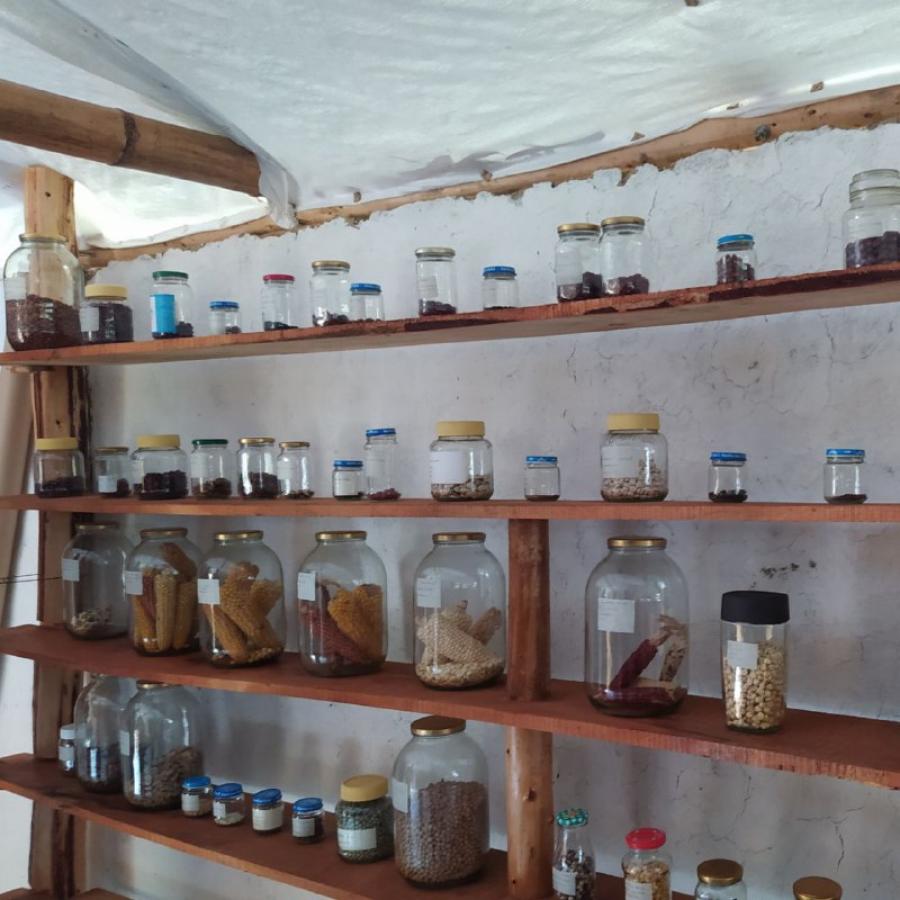"Before the gold was yellow, now it is black, but the color of the blood that pays for them continues being red, continues being Indian..."- U'wa Traditional Authorities
“Plan Colombia is a death sentence for us… [It] is a plan for violence. The money the United States is spending in Plan Colombia will go to protecting the international companies by purchasing arms, more sophisticated equipment, and to constructing military bases in the richest [resource] zones.” - Roberto Perez, President, U'wa Traditional Authority, Feb 7, 2001
Last week, Colombia’s state oil company, Ecopetrol, announced results from a test well suggesting there are recoverable amounts of crude oil on the sacred land of the U’wa indigenous community, located in the cloud forests of northeastern Colombia. This comes as another blow to the U’wa, who have successfully struggled for ten years to prevent oil exploitation of their homeland. As they await official results from test drilling, the U’wa people’s worries are being revived, regarding the increasing threat of violence and the impact on their culture, autonomy, and natural resources should large-scale oil extraction come to pass.
Their struggle started in 1992, when Occidental Petroleum (OXY) and Royal Dutch Shell obtained drilling rights in the Siriri block. The project was quickly condemned by environmental and human rights groups as well others in the industry, and became the focus of one of the most intense campaigns against an oil project in recent history. Due to widespread and international resistance organized by the increasingly savvy U’wa and their allies, Shell pulled out of the project in 1997 before drilling began. OXY continued the project until problems such as legal actions, roadblocks that lasted months at a time, geological challenges, non-violent protests and rebel attacks stemming from the civil war forced it to halt its activities. After investing approximately $100 million in exploration and test drilling, OXY ceded their drilling rights in the Siriri oil block and Gibraltar 1 well site to Ecopetrol. However, OXY stands to make a profit from any company that extracts oil from the area, because oil will need to be transported through its Caño Limón pipeline on the border of U’wa territory.
The U’wa have made their resolute opposition to the plans of any oil company to drill on their lands very clear. In a communiqué issued on March 4, 2003 by the U’wa it is stated that, “The U'wa will never negotiate or sell our mother earth, nature, the environment, our culture, our history, and our higher laws. For the U'wa, all of this is not to be sold. It represents our right to live, which takes preference over any right, be that economic, social, or political.”
The land that the well site is located on was originally owned by the U’wa, but was expropriated by OXY. Now, test drilling is taking place only 500 meters from the U’wa Reserve, and Ecopetrol plans to push farther into legalized U’wa territory for more testing, bringing the threat of increased violence. Oil activity in this area has already brought violence to the U’wa, and destruction to their land from the ongoing Colombian civil war, which targets oil infrastructure as a main battleground. OXY's Caño Limón pipeline has already been bombed more than 100 times and spilled approximately 11 times the amount of oil as the Exxon Valdez spill. Environmental groups, rights groups and the U’wa themselves claim that the culture of the U’wa and their pristine cloud forest ecosystem are in imminent danger if oil projects continue to move forward.
The United States has recently become involved in the area in response to lobbying from OXY, under the aegis of the ubiquitous “War on Terror”. As part of increased military aid to Colombia, the U.S. government will use tax money to give OXY almost $100 million a year worth of protection from U.S. trained Colombian soldiers defending its pipeline. Increasingly the U’wa community is bearing the real, ‘external’ costs of the U.S.’s proxy war and thirst for oil.
On March 10, the U’wa people initiated an alliance of 85 indigenous groups in Colombia in order to increase the consciousness of the Colombian people and strengthen their cultural identity. This alliance seeks to begin dialogue with the Alvaro Uribe Velez government, to ensure that the cultural, economic and resource rights of indigenous peoples will be respected in Colombia. In response to this latest mobilization on their land, the U’wa are also working to create and solidify alliances with indigenous people around the world, as well as environmental and human rights groups who will further their cause.
For more information see: - “The Thinking People: The U’wa Battle Oxy”, Cultural Survival Quarterly, Issue 25.3. -The Colombia Mobilization, a national coalition of organizations and individuals working to transform U.S. policy toward Colombia and the Andean region. See http://www.colombiamobilization.org.



